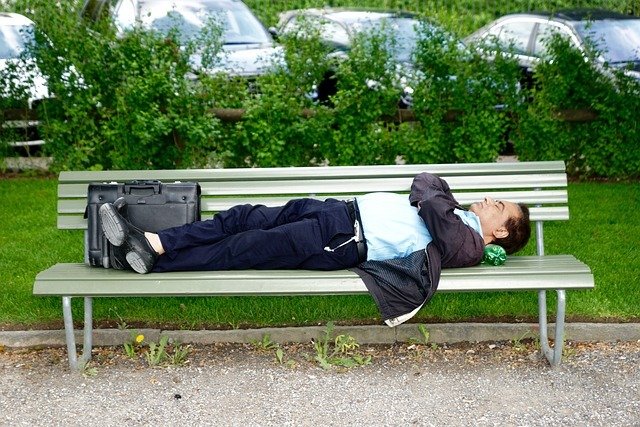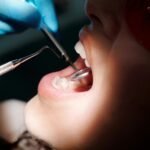Is Sleep Apnea a Disability? 1 Surprising Truth. Let’s determine if sleep apnea qualifies as a disability and its implications.
Sleep apnea is a common sleep disorder that affects millions of people worldwide. But is it considered a disability? we will explore the ins and outs of sleep apnea, its classification as a disability, and the surprising truth that you might not expect.
what is Sleep Apnea?
A sleep disorder called sleep apnea is characterized by frequent breathing pauses while you’re asleep. Apneas, the term for these disruptions, can last anywhere from a few seconds to several minutes and might happen many times each hour. Sleep apnea comes in three primary forms,
Obstructive Sleep Apnea (OSA): The most common form, where the muscles in the throat relax excessively, causing a blockage of the airway.
Central Sleep Apnea (CSA): This occurs when the brain fails to send proper signals to the muscles that control breathing.
Complex Sleep Apnea Syndrome: Also known as treatment-emergent central sleep apnea, this is a combination of both obstructive and central sleep apnea.
Loud snoring, gasping for breath while you sleep, being too sleepy throughout the day, and having trouble concentrating are common symptoms. If sleep apnea is not addressed, it can result in major health problems like diabetes, heart disease, stroke, and high blood pressure. This brings us to a crucial question: Is Sleep Apnea a Disability? 1 Surprising Truth lies in understanding that while sleep apnea itself might not always be viewed as a disability, its severe health impacts and secondary conditions can lead to it being classified as one.
Modifications to one’s lifestyle, dental appliances, continuous positive airway pressure (CPAP) therapy, and occasionally surgery are all common forms of treatment.
Symptoms and Health Risks
- Daytime Fatigue: Chronic fatigue and sleepiness during the day are common, leading to decreased productivity and increased accident risk.
- Cardiovascular Problems: Untreated sleep apnea can contribute to high blood pressure, heart disease, and stroke.
- Mental Health Issues: Anxiety, depression, and difficulty concentrating are also associated with sleep apnea.
Diagnosis and Treatment
- Polysomnography: A comprehensive sleep study conducted in a lab that records brain waves, oxygen levels, heart rate, and breathing.
- Home Sleep Apnea Testing: A simpler test that can be done at home, measuring airflow, breathing patterns, and blood oxygen levels.
- Treatment Options: Common treatments include CPAP machines, lifestyle changes like weight loss, and surgical options for more severe cases.
Is Sleep Apnea a Disability? 1 Surprising Truth
Is Sleep Apnea a Disability?
Let’s address the key question: Is sleep apnea considered a disability? The answer is yes, but it depends on the severity and impact on daily functioning. According to the Social Security Administration (SSA), sleep apnea can be classified as a disability if it significantly limits your ability to work and perform everyday activities.
- Social Security Disability Benefits: To qualify, you must provide medical evidence showing the severity of your condition and how it impairs your ability to work.
- Functional Limitations: Your symptoms must be severe enough to interfere with basic work-related activities, such as concentration and stamina.
- Long-Term Impact: Chronic health issues resulting from sleep apnea, like heart problems, can strengthen your case for disability benefits.
1 Surprising Truth About Sleep Apnea and Disability
Here’s the surprising truth: while sleep apnea itself is not always viewed as a disability, its secondary effects can lead to disability classification. Conditions such as chronic heart disease, stroke, and severe depression, which can arise from untreated sleep apnea, are often recognized as disabilities.
- Secondary Conditions: Conditions like hypertension and cardiac issues stemming from sleep apnea can bolster your disability claim.
- Comprehensive Evaluation: The SSA considers the total impact of sleep apnea and its related conditions on your daily life and work capacity.
- Integrated Approach: Treating sleep apnea effectively can sometimes prevent the development of secondary disabling conditions, emphasizing the importance of timely intervention.
Lifestyle Adjustments and Management
Managing sleep apnea often involves significant lifestyle changes and ongoing treatment. Weight loss, avoiding alcohol and smoking, and maintaining a regular sleep schedule can greatly improve symptoms.
- Healthy Weight: Reducing excess weight can alleviate pressure on the airway, decreasing the severity of OSA.
- Avoiding Alcohol and Smoking: These substances can relax throat muscles and worsen breathing issues during sleep.
- Sleep Hygiene: Establishing a consistent sleep routine and creating a comfortable sleep environment can enhance overall sleep quality.
FAQs
- Can I get disability benefits for sleep apnea?
Yes, you can get disability benefits if your sleep apnea severely impacts your ability to work and perform daily activities.
- What types of sleep apnea qualify for disability benefits?
Both Obstructive Sleep Apnea (OSA) and Central Sleep Apnea (CSA), along with their associated complications, can qualify if they significantly impair your functional capacity.
- How is sleep apnea diagnosed?
Sleep apnea is typically diagnosed through a sleep study, which can be conducted at home or in a sleep clinic.
- What treatments are available for sleep apnea?
Common treatments include CPAP machines, lifestyle changes, oral appliances, and sometimes surgery, depending on the severity of the condition.
- Can lifestyle changes help manage sleep apnea?
Yes, lifestyle changes such as weight loss, avoiding alcohol and smoking, and maintaining a regular sleep schedule can greatly improve sleep apnea symptoms.
THE BOTTOM LINE:
Sleep apnea is a dangerous disorder that may have a big effect on your life. Under some circumstances, it may qualify as a handicap, but the important thing is to look at how it impacts your general health and everyday functioning.
You can better manage the complexity of disability benefits if you are aware of the links between sleep apnea and other chronic health conditions.











